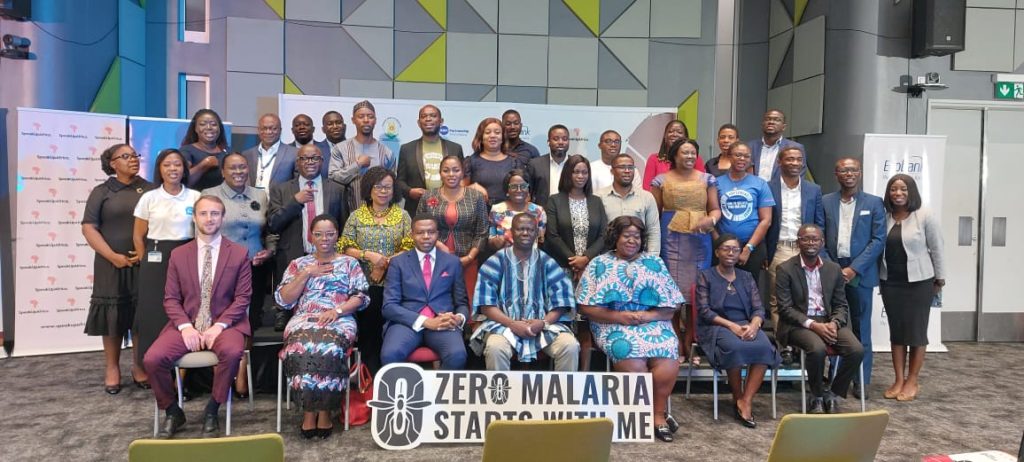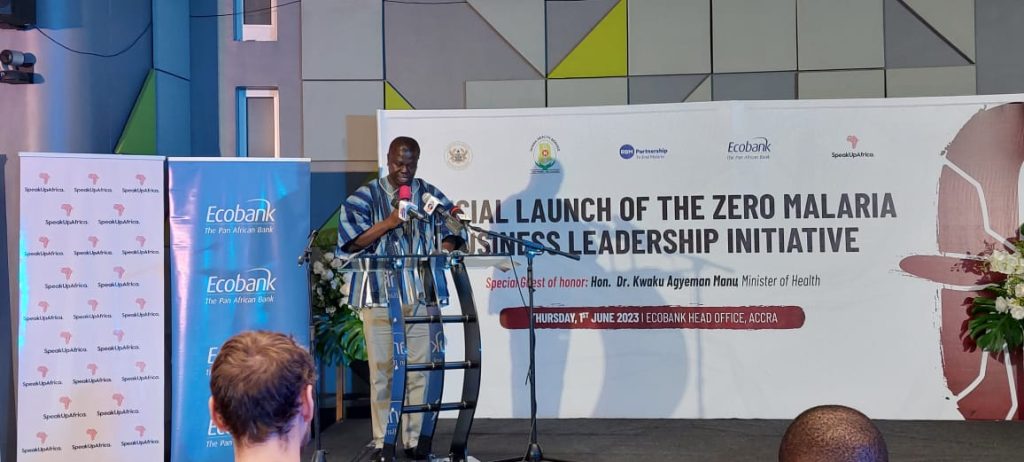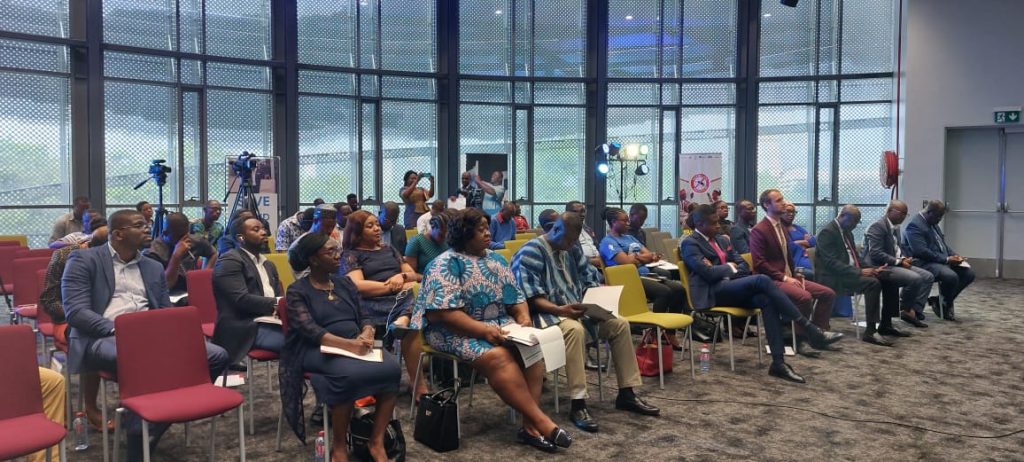Accra, June 3, GNA -Ghana has officially launched the Zero Malaria Business Leadership Initiative, joining four other countries, ready to mobilise private sector companies to support the fight against the disease in Africa.
The initiative, which is led by the Ecobank Group in partnership with RMB and Speak Up Africa, the Zero Malaria Business Leadership aimed to stimulate private sector engagement in the fight against malaria in Africa.

It is currently being implemented in four countries Benin, Burkina Faso, Senegal, and Uganda.
As part of the launch, Ecobank donated $120,000 as seed capital to support the elimination of the disease in Ghana by 2030 and to demonstrate the bank’s unwavering commitment and leadership in spearheading the fight against malaria.
Speaking at the launch, the Minister of Health, Mr Kwaku Agyemang Manu, in a speech read on his behalf by Dr Baffour Awuah, Special Advisor to the Minister of Health, said that the goal of malaria elimination was not a far-fetched dream.
He said malaria elimination could be achieved by aligning efforts with the country’s National Elimination Strategy guided by the Sustainable Development Goals and the World Health Organisation’s Global Technical Strategy.
“…with strong commitment from all partners, it is feasible to eliminate malaria from our country by 2030. This is our genuine and ambitious aspiration, but we cannot do it alone.

To achieve this ambitious goal, the Ministry of Health fully recognises that a multi-sectoral and society-wide approach is imperative. We need the collective strength, expertise and resources of government agencies, civil society organisations, and academic institutions and crucially the private sector,” he said.
The Minister of Health said private sector investment in malaria prevention and control would not only contribute to the well-being of their employees and communities but also ensures a more conducive environment for sustainable business growth.
The Executive Director and Head of Consumer Banking, Ecobank Ghana, Dr Edward Botchway said the initiative would inspire leaders and private sector companies to invest in eliminating malaria.
“For us in Ecobank, we recognize the importance of corporate Ghana contributing bits and quota to the needs of the country. I think that when you talk about malaria, you are talking about six million margin deaths in Africa per year. Clearly, this is a thing that needs to be addressed.
That’s why for us in Ecobank, we feel it’s important that we just not contribute our quota in giving the hundred and twenty thousand dollars $120,000, but also to mobilize and get others to contribute to the fight to ensure that as a country, we can eliminate malaria by 2030,” Dr Botchway said.
He said it was imperative for corporate organizations to get on board and similarly contribute their quota towards the elimination of the menace across the country.
“The enormity of the task requires that corporate Ghana plays its role. We cannot just leave this to the government. That is why we are not just contributing our quota, but also asking other corporate entities and our customers to play their role to ensure that as a country we can eliminate malaria by 2030,” he added.

Mr James Wallen, the Senior Malaria Advisor of Speak Up Africa, a non-profit advocacy organisation based in Senegal, expressed gratitude to Ecobank for the collaboration to inspire leaders and private sector companies in malaria-endemic countries.
“This partnership ensures the full alignment and centralisation of our collective efforts to mobilise the private sector. We commend the efforts you have already undertaken and look forward to working together to ensure the necessary resources are available to implement the strategies outlined in the current and future National Strategic Plans,” he stated.
He emphasised that eliminating malaria hinged on a robust and multi-sectoral partnership approach to include every sector and every individual at every level of society to play a crucial role in making malaria elimination a reality.
“Malaria deeply affects all private sector businesses, and we urge every company to contribute in some way to malaria elimination and to integrate it into their corporate social responsibility plans and priorities”, he appealed.
Touching on the successes in the fight against malaria, the Director-General of the Ghana Health Service, Dr Patrick Kuma-Aboagye praised the government, Global Fund, and all partners and stakeholders for their financial for their consistent support to ensure the delivery of life-saving interventions.
He noted that these financial contributions have reduced malaria-related deaths at all ages by 53 per cent from 333 in 2019 to 155 by the end of 2022.
“Under-five malaria case fatality rate also reduced from 0.12 per cent in 2012 to 0.6 per cent in 2022; 50 per cent reduction. In 2019, we recorded 12 people dying from malaria out of 100,000 malaria admissions while 6 persons died out of every 100,000 malaria admissions in 2022”, he disclosed.
He, however, said malaria remains a significant public health problem in the country despite the achievements chalked over the years, thus, Ghana is part of the 10+1 High burden countries for malaria.
He noted that malaria persists as a leading cause of OPD attendance with 40.5 per cent suspected, 19 per cent confirmed in 2022 in Ghana and a major cause of hospital admissions in health facilities across the country.
He added that malaria cases form 18 per cent of the financial burden on the country’s National Health Insurance Scheme (NHIS).
GNA